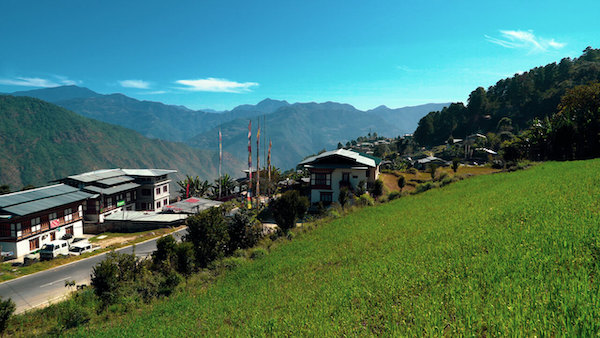
Talking in simpler terms, the core concept of sustainable tourism is to exploit the tourist resources in such a way that they could be utilized in some way for a considerably long time. It has been nicely summed up in one of the WTO (World Tourism Organisation) documents:
Sustainable tourism development meets the needs of the presents tourists and host regions while protecting and enhancing the opportunity for the future. It is envisaged as leading to management of all resources in such a way that economic, social and aesthetic needs can be fulfilled while maintaining cultural integrity, essential ecological processes, biological diversity and life support system.
Sustainability, for tourism as for other industries, has three interconnected aspects: environmental, socio-cultural, economic. Sustainability implies permanence, so sustainable tourism includes optimum use of resources, including biological diversity, minimization of ecological, cultural and social impacts and maximization of benefits to the conservation and local communities.
Evidently, sustainable tourism development can and must fulfil economic, social and aesthetic needs while maintaining cultural integrity and ecological processes. The concept though conveniently understandable actually involves making hard political choices based on complex social, economic, and environmental trade-offs. It requires a vision, which encompasses a larger time and space context than that traditionally used in community planning and decision making.
Today, when the world is vying to conceive, reform and implement eco-friendly and community-based development strategies, the tiny land-locked Dragon Kingdom of Bhutan, despite all its economic constraints, geographic remoteness and topographical complexities, has established itself as a distinct island where the society, the economy, polity and environment are realistically maintaining a most harmonious relationship. Like in other perspectives of development, Bhutan has been adopting a conscious approach in promoting tourism, right from the time it opened its door for tourism in the year 1974. The regulated or restrained approach of tourism development of the Royal Government of Bhutan has its roots in the socio-cultural ethos of the country.
With the vision of ‘A green, sustainable, inclusive and a high-value tourism destination’, tourism planning & development strategies of the Royal Government of Bhutan is guided by the following principles:
- Develop and promote forms of tourism that is consistent with the national development philosophy of Gross National Happiness
- Promote ‘High Value, Low Volume Tourism’ which clearly defines the overall approach:
- Targeting mindful and responsible visitors, creating good value for money experiences, high revenue yield, quality infrastructure and tourism products, services and brand Bhutan. While ensuring that the number of tourists Bhutan receives is consistent with the absorptive carrying capacity of the country’s natural endowment, socio-cultural values and does not exacerbate Bhutan’s vulnerability as a small nation.
- Promote tourism that does not undermine national security and does not erode the country’s tangible and intangible cultural heritage and environment.
- Promote inclusive and equitable growth.
- Ensure sustainable tourism development.
Indeed, Bhutan is sincerely making a concerted effort to devise appropriate interventions keeping sustainability at the forefront of any tourism developmental agenda and for this being recognized in the international community as a sustainable tourism destination with increasing name and fame.